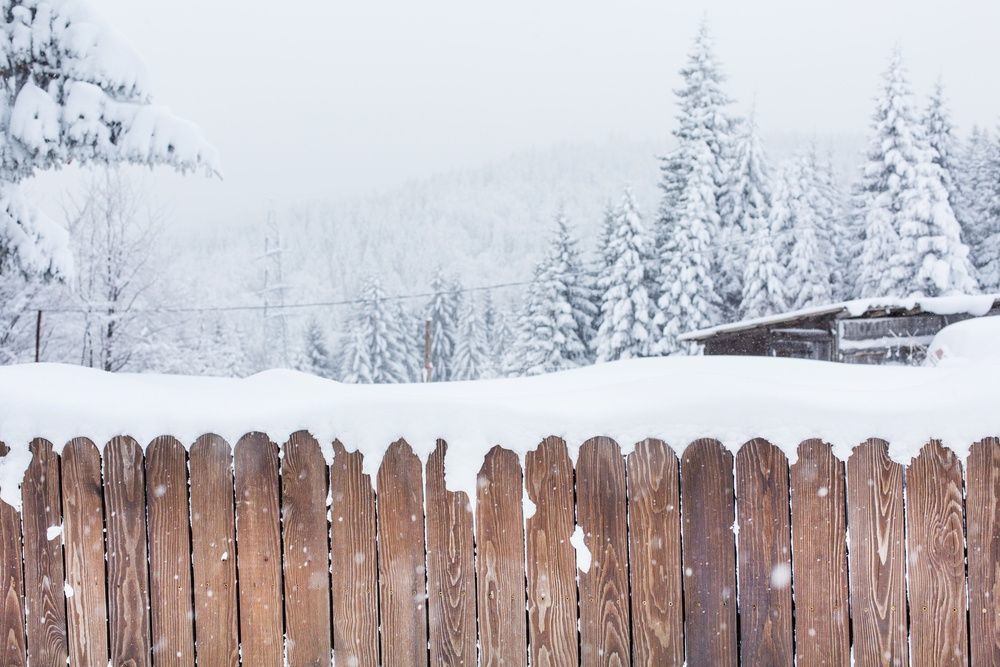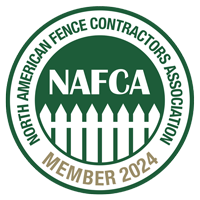Fence Materials for Harsh Winters
When the winter months hit Hamilton, homeowners know how crucial it is to prepare for the snow, ice, and strong winds. But did you know your fence also needs to stand up to these harsh conditions? Choosing the right materials can save you from costly repairs and replacements down the line.
Whether you're building a new fence or upgrading an old one, this guide will introduce you to the best fence materials for harsh winters, offer tips for protecting your investment, and showcase why hiring a qualified fencing contractor is key to the process.

How Winter Can Damage Your Fence
Before we get into materials, it's important to understand how winter weather can wreak havoc on fences:
- Moisture from snow and ice can seep into wooden fences, leading to warping and rotting.
- Heavy winds can loosen or topple poorly installed fence panels.
- The weight of snow buildup may crack or crush unstable fencing.
- Freezing temperatures cause some materials to become brittle and easily damaged.
That's why selecting winter-resistant fencing materials is crucial, especially in Hamilton’s tough winters.
5 Durable Fence Materials for Winter Weather
1. Vinyl Fencing
Vinyl is well-known for its durability, making it one of the top materials for winter climates.
Benefits:
- Resistant to moisture, so it won’t warp, rot, or break down like wood.
- Stands strong against snow and ice without extensive maintenance.
- Easy to clean—just hose off the winter grime in spring!
- Pro Tip: Look for high-quality vinyl free of fillers, as cheaper vinyl can crack in extreme cold.
2. Aluminum Fencing
For a sleek, modern look that’s also tough, aluminum fencing has you covered.
Benefits:
- Doesn't rust like traditional iron fences, standing up to snow and rain.
- Lightweight yet durable, so it won’t buckle under heavy winds.
- Perfect for sloping landscapes, making it a versatile choice.
- Pro Tip: Opt for a powder-coated finish for added protection against corrosion.
3. Steel Fencing
Steel fences are a heavy-duty choice for homeowners wanting something that can handle extreme weather.
Benefits:
- Nearly indestructible against heavy snow and ice buildup.
- Coated steel fencing resists rust better than raw or untreated metal.
- Offers a classic, timeless aesthetic that adds value to your property.
- Pro Tip: Be sure your fence is properly galvanized to prevent rusting in Hamilton’s wet winters.
4. Composite Fencing
Composite fences are quickly gaining popularity as a low-maintenance, wood-alternative option.
Benefits:
- Made from a blend of wood fibers and PVC, ensuring it won’t warp, rot, or splinter.
- Eco-friendly and built to withstand harsh weather conditions.
- Mimics the appearance of wood without the added upkeep.
- Pro Tip: Composite fencing does come at a higher cost but pays off in longevity and durability.
5. Pressure-treated Wood
While standard wood is vulnerable to winter elements, pressure-treated wood can still hold its own.
Benefits:
- Treated to resist moisture, mildew, and rot.
- An affordable option compared to other durable materials.
- Can be stained or sealed for extra protection.
- Pro Tip: If you opt for wood, make sure to schedule regular sealing and maintenance to extend its lifespan.
Why Work with a Fencing Contractor?
Choosing the best materials is only half the battle—professional installation is essential to ensure your fence can withstand snowstorms and freezing temperatures. A fencing contractor, like Davis Fences in Hamilton, will:
- Help you choose the right material for your needs and budget.
- Ensure post holes are dug below the frost line to prevent shifting.
- Use proper sealing and treatments to protect your fence from the elements.
Professional installation also means peace of mind—no worrying about panels coming loose or collapsing when winter hits.
Tips for Protecting Your Fence in Winter
Once you’ve installed your winter-resistant fence, here’s how to keep it in great shape during Hamilton’s cold season:
- Clear snow buildup from the base of your fence to prevent damage or rot.
- Inspect for cracks or loose panels regularly and make repairs promptly.
- Apply a fresh coat of sealant or protective finish annually for wood fences.
- Keep trees and branches trimmed to avoid falling debris during heavy storms.
Final Thoughts
Investing in a sturdy, durable fence is one of the best ways to protect your property and maintain its curb appeal all year long. By choosing the best fences for snow—like vinyl, aluminum, or composite materials—you can enjoy a low-maintenance, long-lasting solution designed to handle Hamilton’s toughest winters.
If you’re ready to upgrade your fence, trust the experts! Contact Davis Fences in Hamilton today for tailored advice and professional installation you can count on. Make the smart choice for your home’s future—because a strong winter-resistant fence is a decision you’ll never regret.
Get a Free Quote Today! Call Davis Fences at 905-643-9933!
Professional Affiliations
Contact us
905-643-9933 tel.
905‑643-4655 fax
office@davisfences.ca
181 Glover Rd.
P.O Box 10066
Stoney Creek, Ontario
L8E 5J2
Privacy
Empowered by Balla Media








